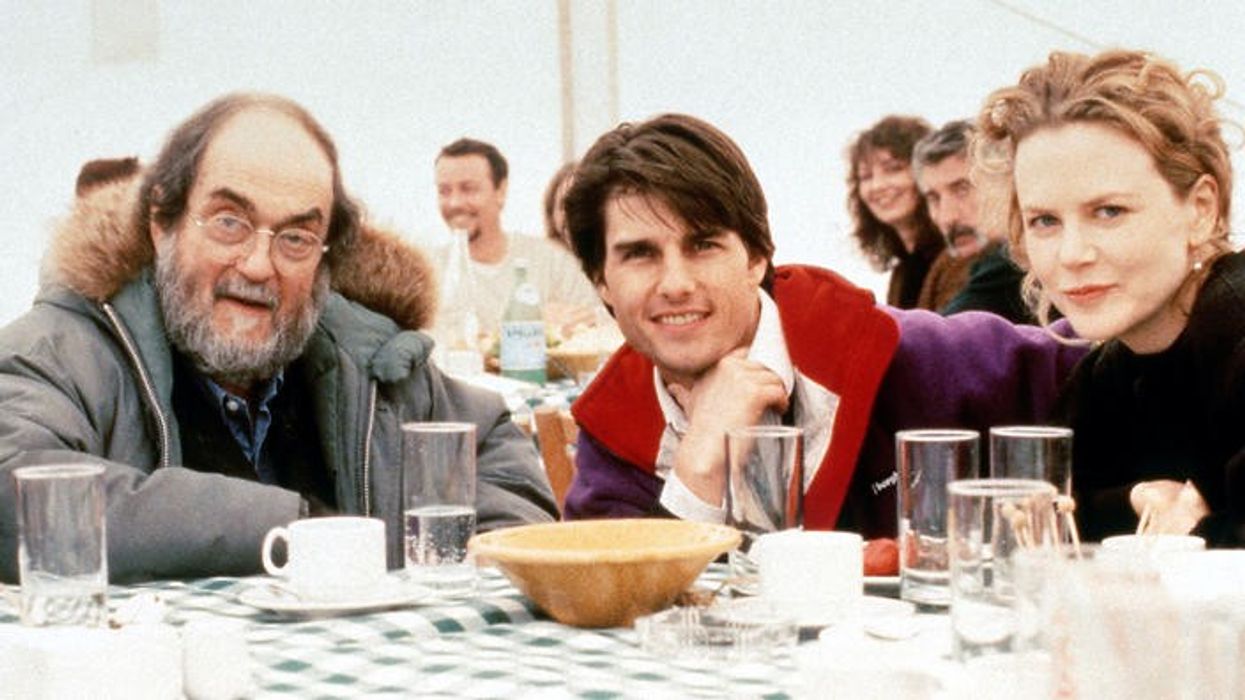Spend Forty Minutes with Kubrick in This Doc
Stanley Kubrick was a recluse, but it turns out he had a lot to share.

We often think of Stanley Kubrick as a guy who was mysterious and slightly unhinged, but his family has spoken out and said that's mostly because of the media's portrayal of him. Kubrick enjoyed his privacy and wanted to keep his family safe. So he settled in a homestead out of the way and would work there in solitude.
But Kubrick would frequently talk to friends and collaborators and have them over the house.
In fact, there are a lot of things I think we got wrong about Kubrick, who was just an artist trying to talk to us about ourselves. He was an imagination that wanted to challenge, entertain, and hypnotize viewers.
His final film, Eyes Wide Shut, allowed him into new territory. There is a 40-minute documentary that provides a look at his life and the lead-up to his final film.
Check out this behind-the-scenes documentary from Warner Home Video about Kubrick's final film and life.
Spend Forty Minutes on a Doc About Kubrick's Life
Kubrick spent time chasing his passion and involving himself in stories that piqued his interest. It sounds cliche, but his career was spent chasing the things he found interesting and then transcribing them for the audience. His cares and passions really made it to the screen and enveloped us.
Sometimes it would be science fiction, or relationships, or paternity, or war—no matter what, he went for it totally. He would spend his time obsessing over plot points or sequences that he would then fit together into a narrative.
I loved seeing all the talking heads of the people who knew Kubrick behind the scenes. His family loved him, his contemporaries were in awe of him. Even collaborators talk about his unique working styles here.
One of the topics I loved hearing about was how he treated everyone equally, and judged them on their minds, and not on anything else. That seems oddly progressive.
What comes across most is how much he genuinely cared about every aspect of a project. He wanted every detail to go his way, and he was a perfectionist because it came from a sense of control and expression. These projects had to be the utmost part of his soul and vision hitting the screen. He saw himself as a general leading an army, and that would lead to conflicts and the butting of heads. It's not the best way to go through life, but it was the best way to work through his art.
Though there are grumpy thoughts in this, people still say how much they respected him, even when he fired them or lost his temper.
I also loved hearing how he pushed AI to Spielberg because he thought he was the ideal director for it. But he did this without fanfare, sending all the storyboards and script to Spielberg in secret. Kubrick found ways to be collaborative behind the scenes. He shot Eyes Wide Shut while working to produce AI because he truly believed in Spielberg's voice on the project.
There are lots to learn from his passion and craft. What were your favorite parts of this documentary?
Let me know in the comments.











